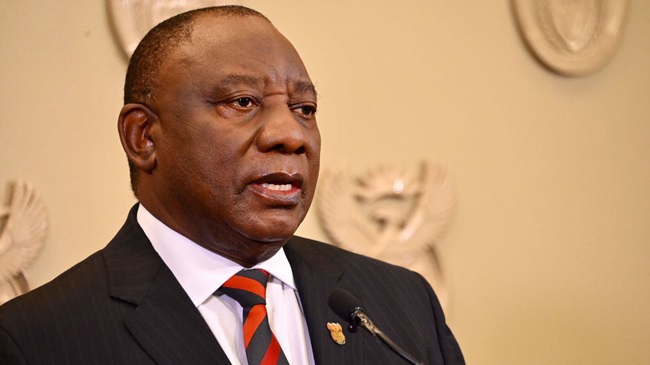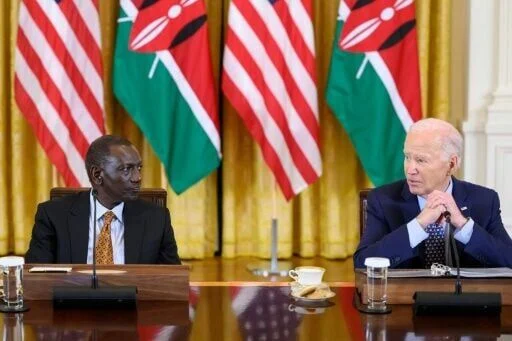This article explores how tourism brings the world closer to Africa, highlighting the opportunities it creates for economic development, cultural exchange, and international solidarity while addressing the challenges accompanying this dynamic industry. Tourism has long been heralded as a powerful force for global unity, bridging cultural divides, and fostering mutual understanding. In the context of Africa, a continent rich in diversity, history, and natural beauty, tourism holds particular promise.
Africa’s tourism industry has experienced significant growth over the past few decades. According to the United Nations World Tourism Organization (UNWTO), the continent saw a 7% increase in international tourist arrivals in 2019, a testament to its rising popularity as a travel destination and here are the key factors contributing to this growth:
Natural Wonders
Africa is a popular destination for adventure seekers and nature enthusiasts due to its iconic natural attractions like the Serengeti, Mount Kilimanjaro, Victoria Falls, and the Sahara Desert. Its unique wildlife, including the Big Five, makes it a prime destination for wildlife safaris. Africa’s diverse cultures, languages, and traditions, from vibrant markets in Morocco to traditional dances in Kenya, make it a significant draw for cultural tourism. Additionally, many African countries have invested in improving their tourism infrastructure, making travel more accessible and comfortable.
Economic Impact of Tourism
Tourism is a significant economic driver for African countries, contributing 8.5% of Africa’s GDP in 2018, and creating millions of jobs. It generates employment in sectors like hospitality, transportation, and guiding services, particularly in rural areas. Tourists also generate revenue by spending on accommodation, food, activities, and souvenirs, which can be used to improve public services and infrastructure. Tourism also brings foreign currency into African countries, helping to balance trade deficits and stabilize economies. South Africa, a top tourist destination, saw substantial economic benefits from tourism, contributing 2.9% to its GDP in 2019 and employing over 720,000 people. Kenya’s tourism industry is also a major economic driver, generating significant revenue from national parks and coastal resorts.
Fostering Cultural Exchange and Mutual Understanding
Tourism not only benefits the economy but also fosters cultural exchange and mutual understanding between Africa and the rest of the world. Tourists encounter different lifestyles, traditions, and perspectives, leading to increased appreciation for Africa’s diversity and richness. Engaging with local cultures, such as participating in festivals and visiting historical sites, can transform experiences. Personal interactions between tourists and locals can challenge preconceived notions and stereotypes about Africa, countering the negative portrayal in global media. Tourism also offers educational opportunities, providing a platform for learning about Africa’s history, contributions to human civilization, and the impact of colonialism. Dr. Taleb Rifai, former Secretary-General of the UNWTO, once remarked, “Tourism is a powerful vehicle for promoting understanding, tolerance, and peace. It bridges divides and brings people together across cultures.”
While tourism offers significant benefits, it also presents challenges that must be managed carefully to ensure long-term sustainability. Tourism can have significant environmental and cultural impacts, including habitat destruction, wildlife disturbance, and pollution. It can also commodify cultures, with traditions and customs often showcased for tourists’ entertainment rather than their intrinsic value. Additionally, the economic benefits of tourism may not always be evenly distributed, with large-scale operations profiting more than local communities. Many African countries are adopting sustainable tourism practices to address these issues, including community involvement, environmental conservation, and responsible tourism practices. These practices involve involving local communities in planning and decision-making processes, implementing ecotourism initiatives, and encouraging tourists to behave responsibly and respectfully towards local cultures and environments.
Success Stories in African Tourism
Kenya, South Africa, Morocco, and many other African continents have successfully used tourism to drive economic development and foster international connections. Kenya’s tourism sector, known for its wildlife and safaris, attracts thousands of tourists annually, supporting conservation efforts and generating revenue for local communities. South Africa’s diverse landscapes and rich history, including wildlife safaris and cultural tours, have grown significantly, supported by robust infrastructure and marketing campaigns. Morocco’s unique blend of Arab, Berber, and French influences, historical sites, and vibrant markets, has made it a popular destination, with investments in infrastructure and marketing boosting tourist arrivals.
READ ALSO: Namibia: From Seal Colonies to Desert Dunes, a Tourist’s Paradise
Tourism in Africa faces several challenges, including infrastructure gaps, security concerns, cultural sensitivity, and environmental sustainability. While improvements have been made, many regions still lack the necessary infrastructure for large-scale tourism. Addressing these gaps is crucial for attracting and retaining tourists. Political instability and security issues can deter tourists, and initiatives should respect and preserve local traditions. Balancing tourism growth with environmental sustainability is also essential, promoting eco-friendly practices and minimizing the ecological footprint of tourism activities.
Africa’s tourism future is promising as it develops infrastructure and promotes diverse attractions. Trends include eco-tourism, conservation, cultural and heritage tourism, adventure and experiential travel, and technology integration. As African countries develop their tourism sectors sustainably and inclusively, they can harness tourism to create a more connected, prosperous, and harmonious world. This vision requires collaboration, innovation, and a commitment to preserving the continent’s unique heritage and natural beauty.


